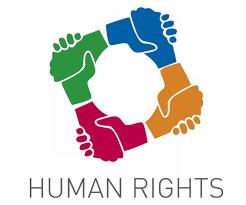FEATURED: What is the Universal Declaration of Human Rights?
December 10, 1948, 48 nations passed what would become the most-translated document in the world: the Universal Declaration of Human Rights (UDHR). It sets out, for the first time, each and every person’s fundamental human rights that should be protected and respected.
The UDHR has been translated into more than 500 languages and has been elaborated in many international treaties, regional human rights instruments, and national constitutions.
<>
ADVERTISEMENT: This space is reserve for your Ad, contact aseanews.net now!
<>
But 69 years later, the UDHR has become more relevant than ever as the world sees a “disturbing hostility” towards human rights in all regions, United Nations Secretary-General Antonio Guterres said.
<>
What is the UDHR, really? What does it do to protect the people?
The declaration was born three years after the end of the Second World War that left millions of people dead, homeless and starving. It was a direct result of the United Nations’ efforts to prevent a war of such magnitude from happening again.
The document consists of 30 articles that articulate an individual’s basic, inalienable rights. It also establishes the basic concepts of dignity, liberty, and equality, emphasizing that “all human beings are born free and equal in dignity and rights.”
Individual rights
Human rights are often synonymous to the right to life and other individual rights—the right to security and due process, right to choose religion and freedom of opinion. But it is more than that: the UDHR also lays out the individual’s economic, social, and cultural rights.
Article 25 of the declaration proclaims that each and every person has the right to a “standard of living adequate for the health and well-being of himself and of his family.”
This includes “food, clothing, housing and medical care and necessary social services, and the right to security in the event of unemployment, sickness, disability, widowhood, old age or other lack of livelihood in circumstances beyond one’s control.”
Article 26, on the other hand, declares that education is a right and shall be free, at least in the elementary and fundamental stages.
<>
<>
It also states that elementary education shall be compulsory, while technical and professional education “shall be made generally available” and higher education “shall be equally accessible to all on the basis of merit.”
The same article states that education shall be used to the “full development of the human personality and to the strengthening of respect for human rights and fundamental freedoms.”
Right to work
Article 23 of the UDHR states a person’s right to work, practice his choice of employment, and to “just and favourable conditions of work and to protection against unemployment.”
It also states that everyone, without any discrimination, “has the right to equal pay for equal work,” and everyone who works “has the right to just and favourable remuneration ensuring for himself and his family an existence worthy of human dignity, and supplemented, if necessary, by other means of social protection.”
The provision also states an individual’s right to form and to join trade unions “for the protection of his interests.”
Article 24, on the other hand, states an individual’s right to rest and leisure, “including reasonable limitation of working hours and periodic holidays with pay.”
Read the full Universal Declaration of Human Rights here. /je
NOTE : All photographs, news, editorials, opinions, information, data, others have been taken from the Internet ..aseanews.net | [email protected] |
For comments, Email to :
D’Equalizer | [email protected] | Contributor.









